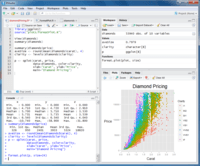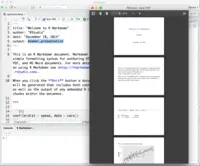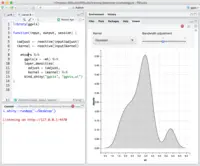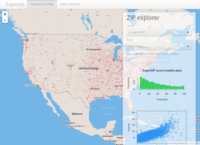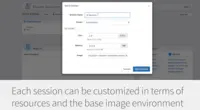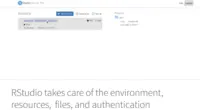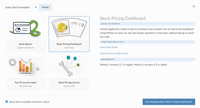Overview
What is Posit?
Posit, formerly RStudio, is a modular data science platform, combining open source and commercial products.
Awards
Products that are considered exceptional by their customers based on a variety of criteria win TrustRadius awards. Learn more about the types of TrustRadius awards to make the best purchase decision. More about TrustRadius Awards
Popular Features
- Visualization (26)8.484%
- Connect to Multiple Data Sources (25)8.181%
- Extend Existing Data Sources (26)7.474%
- Automatic Data Format Detection (25)6.363%
Reviewer Pros & Cons
Video Reviews
2 videos
Pricing
Entry-level set up fee?
- Setup fee optional
Offerings
- Free Trial
- Free/Freemium Version
- Premium Consulting/Integration Services
Would you like us to let the vendor know that you want pricing?
11 people also want pricing
Alternatives Pricing
Product Demos
What is Posit Workbench? Build Data Products in R & Python using Jupyter, VSCode, and RStudio.
Posit Connect | Host all of the data products you create
Features
Product Details
- About
- Integrations
- Competitors
- Tech Details
- FAQs
What is Posit?
Posit, formerly RStudio, provides a modular data science platform that combines open-source and commercial products.
their open source offerings, such as the RStudio IDE, Shiny Server, rmarkdown and the many packages in the tidyverse, boast users among data scientists around the world to enhance the production and consumption of knowledge by everyone, regardless of economic means.
Their commercial software products, including Posit Workbench, Posit Connect, and Posit Package Manager, are available as a bundle in Posit Team. These products aim to give organizations the confidence to adopt R, Python and other open-source data science software at scale. This enables data science teams using R and Python to deliver interactive reports and applications to decision-makers, leverage large amounts of data, integrate with existing enterprise systems, platforms, and processes, and be compliant with security practices and standards.
The platform is complemented by online services, including Posit Cloud and shinyapps.io, to make it easier to do, teach and learn data science, and share data science insights with others, over the web.
Posit’s open-source software and commercial software form what the vendor describes as a virtuous cycle: The adoption of open-source data science software at scale in organizations creates demand for Posit’s commercial software; and the revenue from commercial software, in turn, enables deeper investment in the open-source software that benefits everyone.
Posit Features
Platform Connectivity Features
- Supported: Connect to Multiple Data Sources
- Supported: Extend Existing Data Sources
- Supported: Automatic Data Format Detection
Data Exploration Features
- Supported: Visualization
- Supported: Interactive Data Analysis
Data Preparation Features
- Supported: Interactive Data Cleaning and Enrichment
- Supported: Data Transformations
Platform Data Modeling Features
- Supported: Multiple Model Development Languages and Tools
- Supported: Single platform for multiple model development
- Supported: Self-Service Model Delivery
Model Deployment Features
- Supported: Flexible Model Publishing Options
- Supported: Security, Governance, and Cost Controls
Additional Features
- Supported: Share Data Science insights in the form of Shiny applications, Quarto content, R Markdown reports, Plumber APIs, dashboards, Jupyter Notebooks, and interactive Python content.
Posit Screenshots
Posit Videos
Posit Integrations
- Amazon SageMaker
- Kubernetes
- Apache Spark
- Jupyter Notebook
- Streamlit
- Tableau Desktop
- Azure Machine Learning
- Databricks Lakehouse Platform
- Microsoft Visual Studio Code
- Bokeh
- Slurm
- Dash applications
- SAML Marketplaces
Posit Competitors
Posit Technical Details
| Deployment Types | On-premise, Software as a Service (SaaS), Cloud, or Web-Based |
|---|---|
| Operating Systems | Windows, Linux, Mac |
| Mobile Application | No |


